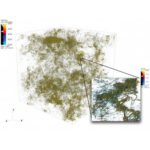The Exascale Computing Project (ECP) has announced that a team of researchers has developed the Feature Tracking Kit (FTK), which uses simplicial spacetime meshing to simplify, scale, and deliver novel feature-tracking algorithms for in situ data analysis and scientific visualization. FTK delivers feature-tracking tools, scales feature-tracking algorithms in distributed and parallel environments, and simplifies development […]
Toolkit Delivers 4D Visualization, Addresses Data Volume Challenges in Exascale
DOE Resumes Webinar Series Aug. 4 on HPC Scientific Software Engineering Challenges and Best Practices
The IDEAS Productivity project, in partnership with the DOE Computing Facilities of the ALCF, OLCF, and NERSC and the DOE Exascale Computing Project (ECP) has resumed the webinar series on Best Practices for HPC Software Developers, which began in 2016. To register for the event, go here. As part of this series, one-hour webinars are offered on topics in scientific […]
How DOE Scientists Disrupted COVID-19
In early 2020, when the novel coronavirus was gaining momentum but had not yet been named a pandemic, computational chemist Marti Head of Oak Ridge National Laboratory – along with scientists and researchers around the globe – abruptly switched her focus to the fight against COVID-19. The world was struggling to understand this new virus known as severe acute […]
Annual OLCF User Meeting Set for June 22–24
The Oak Ridge Leadership Computing Facility (OLCF), a US Department of Energy Office of Science user facility at Oak Ridge National Laboratory, will hold its 17th annual user meeting June 22–24, 2021. The meeting will take place entirely online due to the COVID-19 pandemic. Registration and agenda can be found here. Attendees will be offered […]
OLCF Releases Storage Specs for Frontier Exascale
A newly enhanced I/O subsystem will support the nation’s first exascale supercomputer, the HPE Cray Frontier system, and the Oak Ridge Leadership Computing Facility (OLCF). The computational might of exascale computing, expected to have top speeds of 1 quintillion — that’s 1018, or a billion billion — calculations per second, promises to enable breakthrough discoveries across the scientific spectrum when Frontier, set to power up by year’s end, opens to full user operations in 2022, from the basics of building better nuclear reactors to insights into the origins of the universe. The I/O subsystem will consist of two major components: an in-system storage layer and a center-wide file system. The center-wide file system, called Orion, will use open-source Lustre and ZFS technologies.
Summit Supercomputer Helps Crack Code to Signature Superconductor ‘Kink’
May 19, 2021 — Scientists have long been trying to understand the behavior of superconductors, materials that have zero electrical resistance when they reach sufficiently low temperatures. Superconductors might be useful for technologies such as magnets for MRIs, fusion devices, and particle accelerators. To understand superconductors, one concept is pivotal: phonons, which are quantum waves […]
Oak Ridge Leadership Computing Facility to Hold Virtual User Meeting June 22-24
The Oak Ridge Leadership Computing Facility (OLCF) User Meeting will be held June 22-24, 11 a.m.-4 p.m. Eastern Time. This meeting will be held as a virtual (online-only) event via Zoom. The registration form and agenda can be found here. The last day to register for this event is June 12, 2021. The purpose of […]
ORNL Offers Virtual Tour of Summit’s Supercomputer Center
Oak Ridge National Lab has released a virtual tour of the facility that houses Summit, the world’s second most power supercomputer. The tour is offered by the National Center for Computational Sciences (NCCS) and the Oak Ridge Leadership Computing Facility (OLCF). They’re giving access to Building 5600 on the Oak Ridge campus where resides Summit, […]
DOE INCITE program seeks proposals for 2021
The DOE INCITE program has issued its Call for Proposals. “Open to researchers from academia, industry and government agencies, the INCITE program is aimed at large-scale scientific computing projects that require the power and scale of DOE’s leadership-class supercomputers. The program will award up to 60 percent of the allocable time on Summit, the OLCF’s 200-petaflop IBM AC922 machine, and Theta, the ALCF’s 12-petaflop Cray XC40 system.”
Tackling Turbulence on the Summit Supercomputer
Researchers at the Georgia Institute of Technology have achieved world record performance on the Summit supercomputer using a new algorithm for turbulence simulation. “The team identified the most time-intensive parts of a base CPU code and set out to design a new algorithm that would reduce the cost of these operations, push the limits of the largest problem size possible, and take advantage of the unique data-centric characteristics of Summit, the world’s most powerful and smartest supercomputer for open science.”







